- සි
- த

- Address : Bathalagoda, Ibbagamuwa, Sri Lanka
- E- Mail : rrdi@doa.gov.lk
- Telephone : +94 372 258561
- Fax : +94 372 259881
Rice In Sri Lanka - Rice Diseases
Brown Spot
Causative agent
Fungus Cochliobolus miyabeanus (Bipolaris oryzae)
Plant parts and life stages affected
Coleoptiles, leaves, leaf sheath, immature florets, branches of the panicle, glumes, and grains are affected.
Spots are present in plants at emergence; however, the disease is more prevalent as the plants approach maturity and the leaves begin to senesce.
It is a seed born disease.
Yield losses from leaf infection or leaf spots are probably not serious. Economic losses occur when the fungus attacks the panicle, including the grain.
Symptoms
The fungus causes brown, circular to oval spots on the coleoptiles which may lead to seedling blight.
Seedling blight may cause sparse or inadequate stands and feeble plants.
The spots are smaller on young leaves, than on upper leaves.
Size and shape of the spots may vary from minute dark (dark brown to reddish brown) spots to large oval to circular spots (having dark brown margin and a light, reddish-brown or gray center).
The spots on the leaf sheath and hulls are similar to those on the leaves.
When the glumes are infected, a general black discoloration could be observed.
When the immature florets are attacked, grain development might het hindered or kernels that are of light weight or chalky may result.
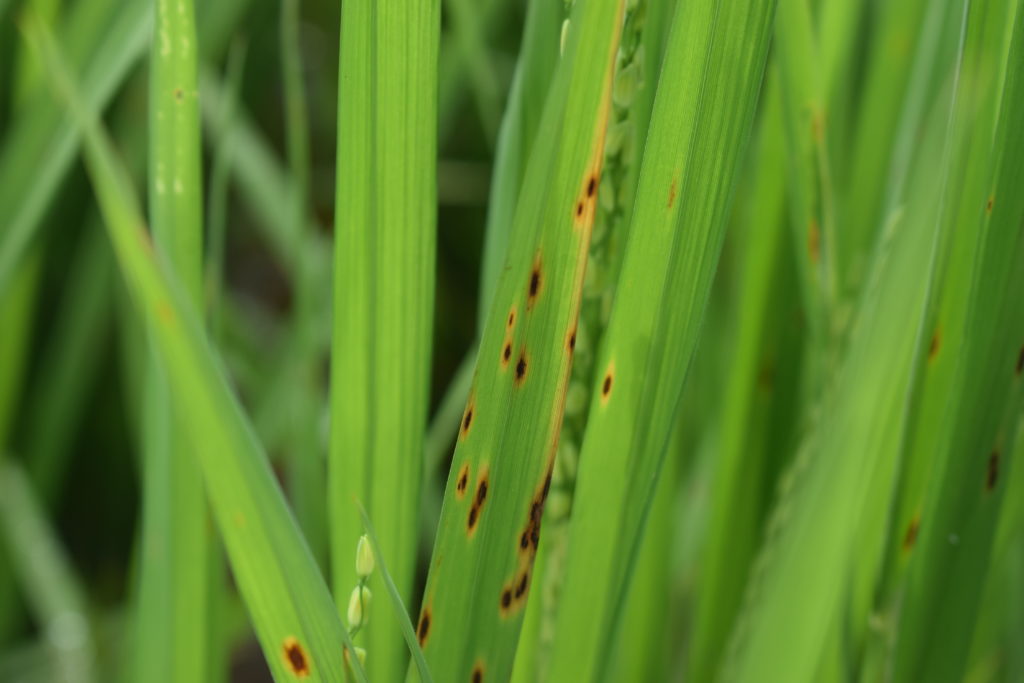
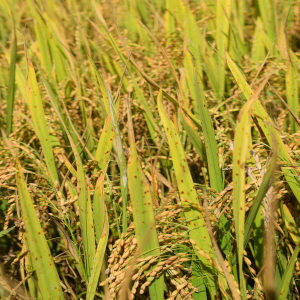
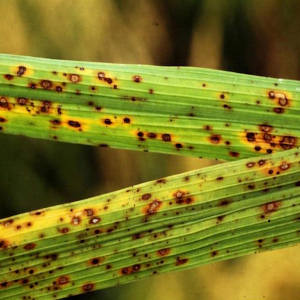
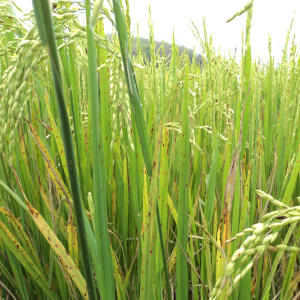
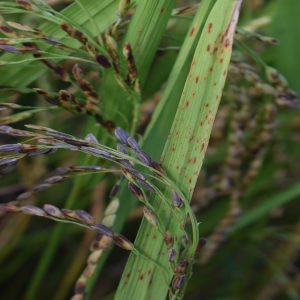
Conditions that favour the disease
Environmental temperatures within 16-36 OC
High humidity (86-100%)
Soils with low level of required nutrients or problem soils (high salinity, Iron toxicity)
Drought
Disease Management
Within the crop season
Application of urea in recommended dosages or application of urea based on leaf colour chart.
If the crop is infected, following management options should be applied for the next season
-
-
- Application of organic fertilizer will increase the soil quality
- Use of certified seed paddy free from the disease
- Addition of burnt paddy husk (250 kg per acre) to the soil during land preparation.
- Abstain addition of disease infected straw.
- Treatment of seed paddy by dipping in hot water (53-54OC) for 10-12 minutes
- Treatment of seeds with a seed-protectant fungicide
- Crop rotation
- Proper land leveling
-
